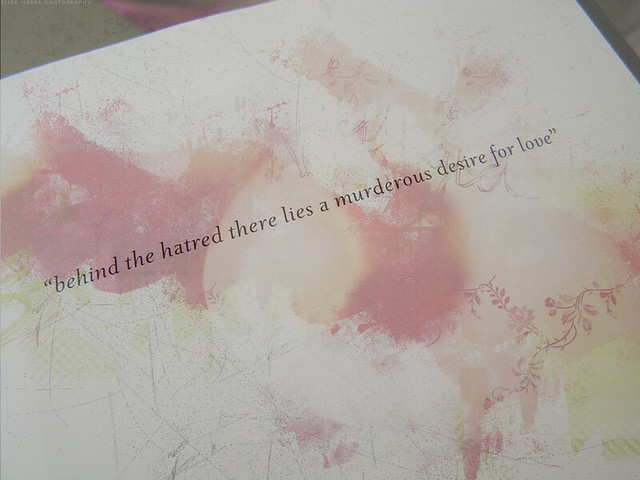
Who Do We Hate the Most?
Who we hate the most appears to define our world.
We live in a world which has been been at war for longer than we can remember. Large groups of people who hate each other and take violent actions to express their hatred.
It is almost impossible to go onto social media without hearing about what or who someone hates. Other media are essentially the same. Hatred seems to be everywhere.
Some of us have become more sophisticated about how we communicate our hatred. We do not want other people to accuse us of hate speech or inciting hate crimes. Our words do not brim with venom and vitriol, but with sarcasm and “humor.”
What do we mean when we talk about hating something or someone?
It is easy for us to categorize our hatreds and put them into words. Some of us experience hatred when this happens and some of us when that happens. We become more expert each day about what we despise, loathe, and abhor.
There is something intensely personal about hatred. We know deep within our hearts what we hate, even when we cannot remember why.
For some of us hatred is emotional. It happens when we get so angry it boils over into something more intense. Others of us have a more intellectual hatred. We were taught to hate certain people from our earliest days.
We experience having little or no control over hatred. Hatred has been woven into the fabric of our lives. It has power over us. Our hatred moves us to do things in certain ways.
For many of us hatred is something which comes over us. We do not question it.
We do not know what we are doing when we hate.
Our Hatred Destroys Us
We believe our hatred destroys its focus. The intensity of our emotions or beliefs convinces us we are corroding the focus of our hatred. We put so much of our energy into hating it must change something.
Our hatred does not destroy whatever or whoever we hate.
When we spend our lives hating someone or something we are wasting our time. Hatred has a corrosive effect on us, eating away our strength and energy.
The person most injured by our hating is ourself.
Many of us experience hatred as an extension of our fear or anger. The object of our hatred commands more and more of our time and attention. We may put together elaborate plans to retaliate or gain revenge. The attention of our hearts and our minds is absorbed in our hatred.
The more our hatred grows in us the less room is left for who we truly can become.
We will begin to see evidence which supports our hatred wherever we look. Our time and attention become fuel for the fire of our hate.
Whoever or whatever we hate will not be consumed by our hatred. We will.
Some of us understand our hatred is not rational and does not make sense. We may appreciate hating is not healthy but not know what we can do to stop it.
How can we stop whatever it is our hatred does to us? Are there ways to heal and give up hating?
Our first step is recognizing what our hatred does to us. When we appreciate how our hating harms us we begin to realize we need to stop.
It is a challenge, particularly because the culture all around us is fueled by the power of hatred.
What is our next step toward freedom from hate?
Healing How We Hate
It is not enough for us to simply decide to stop hating.
Our hate is a powerful way of living we have been practicing for as long as we can remember. There will be aspects of our hatred which are still intertwined in our lives. It will take us practice to become aware of all the ways hate is part of how we live.
When we are physically dependent on someone or something, we need to pay attention to our bodies. We test our strength or our balance to determine whether we can stand on our own.
Healing the ways we have depended on hatred can feel similar to recovering from a physical injury or illness.
It is not enough for us to be free from the fever of hatred right now. Hate may be hiding within us waiting for an opportunity to flare up again.
Our healing from hatred takes time. We cannot simply decide one day we will not hate anymore.
As we learn about our own hatred we become aware of its guises. We pay attention and practice not hating. It is possible for us to learn to forgive ourselves and let go of what caused us to hate.
Hatred and Spiritual Life
I know people for whom hatred and anger are integral aspects of spiritual life. They believe they are loving what is good and hating what is evil.
For many of us hatred is embedded deep within us. It can be a challenge for us to recognize it as hatred. Many of us assume most other people share our feelings and beliefs, and our hatred. It is just the way things are.
Our contemplative practices give us opportunities to reflect on our internal hatreds. We listen to the stillness within us and around us, opening ourselves to spiritual life.
As we take time to pause and breathe and listen we begin to recognize the truth of who we are.
Spiritual life works in us in ways we do not control to help heal our hatreds.
At a time when the culture in which we live encourages our hating, spiritual life shows us a different way of living.
We begin to appreciate what our hating costs us.
Spiritual life is about healing the injuries and harm caused by hatred.
Who do we hate the most bitterly?
How will we understand who we hate the most in a new way today?
[Image by EliseMeder]
Greg Richardson is a spiritual director in Southern California. He is a recovering assistant district attorney and associate university professor and is a lay Oblate with New Camaldoli Hermitage near Big Sur, California. Greg’s website is http://StrategicMonk.com and his email address is [email protected].












